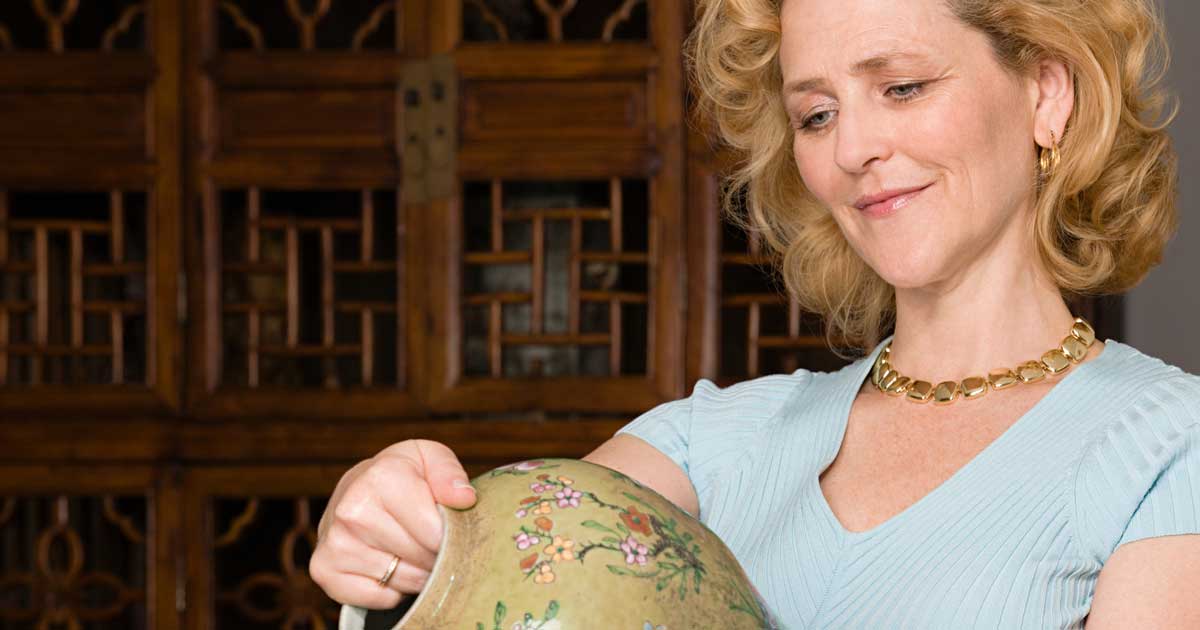Is downsizing part of your retirement plan? If it is, you’re no doubt catching up on all the latest tips and suggestions for how best to successfully navigate the process. But you may find yourself coming face-to-face with a relatively new challenge. And one that is becoming more common.
When the time arrives to pass down the family heirlooms, your children may not want them.
Their response is not from a lack of love or an appreciation of history, but today’s homes and their occupants are much different from previous generations.
You may be the recipient of your mother’s or grandmother’s silver or you might be storing china that you’ve never used. Why? Because you were expected to become its guardian. Children today may not be as accommodating. Lifestyles tend to decline accumulations. And if they have less space, it’s reserved for only what they’ll use.
Home designs are also quite different. Instead of formal living and dining rooms, there may be no wall space for a hutch or sideboard. The openness of space creates more flexibility but often less room for extra furniture that doesn’t fit their design sense.
How to manage your heirlooms when downsizing
If you find yourself the overseer of the family’s sentimental possessions but are struggling to find them a home so you can downsize, where do you start?
Here are a few suggestions from the Family Tree Magazine that can help smooth out the process. Consider these three options for your heirlooms:
-
Distribute them to heirs
The first step after deciding what you want to keep is to offer them to your children and other family members. You’ll want to make sure all recipients are willing and able to care for the items. Ask for their help in deciding who and when the possessions will change hands. You may want to divide items into categories of furniture, art and jewelry. When possible, include background or a little history with the keepsake, which makes them much more meaningful.
-
Donate the items
If you have historically significant items, and no children or family members who want to take possession, you might want to consider contacting an archive, museum or local historical society to see if they would be interested. You don’t have to be offering famous artifacts, just items that could be of interest. Often the most valuable are those that make up a collection, such as your grandmother’s letters, uniform and medical bag from when she served as an Army nurse.
-
Discard the remaining items
This can be a critical step in downsizing, especially if you’re tempted to rent storage space to house what’s left. That’s only a temporary solution and it’s better to finish the process. Consider an auction house or have an on-site auction or estate sale at your home. Have items appraised if you don’t know their value but remember that the market, not sentiment, will set the price. Another option is to forego the hassle of a sale and donate instead to an organization that supports your charitable cause or a church benefit.
What to do if your children reject the heirlooms?
Don’t take it personally. It’s more a reflection of changing times and priorities. A past generation who collected Depression glass might find it hard to accept, but a visit to any thrift shop will likely find it overcrowding the shelves. The same for sets of china or silverware. Today’s life doesn’t leave much time or a desire for hand washing plates that can’t go into a dishwasher or polishing silver.
The days of formal holiday dinners may be left behind for many families but that doesn’t translate to a lack of caring. Consider thinking outside of the box when dealing with children or grandchildren. Allowing or even suggesting that the inheritor sell the heirloom to fund a trip abroad or to purchase a longed-for item can also honor an ancestor. The fond memories of a trip will always be connected to the relative.
Helpful reminders when downsizing
- Even if your child doesn’t want your great-grandmother’s tea set, he can still love and appreciate family. Don’t confuse the two.
- If your children are short on space, don’t make them feel guilty. You don’t really want anyone to rent a storage unit just to take your formal dining room set.
- Consider using the heirloom one last time. Celebrate and then let it go. Use the good china, get out the crystal and the silverware for a celebratory dinner and invite the kids. During the meal, tell stories about the person or share old memories.
- Keep one or two smaller items if you can’t bear giving it all away. Some people worry that letting go will also be like letting go of the memories. But that’s not true. Take a picture of the item, which can spark the memory but not take up near the space.
Baby boomers may be the last generation who possess all the collectibles that have been passed down throughout the years. But downsizing creates the perfect opportunity to deal with years of accumulations. Even if your children regretfully decline, the key is to remember that the love and the memories are yours to take with you, wherever you go.
If you’re one of the many retirees who are choosing to downsize and move into a retirement community, we invite you to visit us at Countryside. For information about Countryside, call Margaret Nagel at (517) 206-5000 or download our brochure to learn about our care levels, cost, and amenities.


